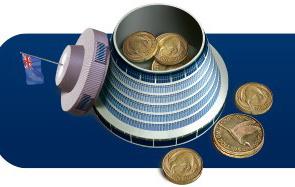For Southland’s business community, particularly our SMEs, the Budget presents a mix of opportunities and challenges.
A notable initiative is the Investment Boost tax incentive, allowing businesses to deduct 20% of the value of new productive assets — such as machinery and equipment — from their taxable income in the year of purchase, in addition to standard depreciation.
This measure is designed to encourage capital investment and enhance productivity, offering tangible support for businesses ready to expand and modernise their operations.
However, the Budget also introduces changes to KiwiSaver, increasing default contribution rates for both employers and employees from 3% to 4% by 2028, while reducing government contributions.
While these adjustments aim to bolster long-term savings, they represent an additional cost for employers, particularly SMEs operating on tight margins. The lack of offsetting measures or transitional support may strain businesses.
Beyond these headline items, the Budget allocates $75 million to encourage foreign investment in infrastructure and to assist startups in attracting and retaining talent.
Additionally, a $577m investment in the film and television sector is expected to create jobs and stimulate economic activity.
Infrastructure spending focuses on essential services, including healthcare, education and transportation, which, while beneficial, may not provide immediate relief for businesses.
The government’s commitment to growth is evident, but the effectiveness of these measures will depend on implementation and accessibility.
The business community requires clear guidance and streamlined processes to fully leverage these initiatives.
In summary, Budget 2025 offers promising steps toward economic growth, but for Southland’s SMEs, the path forward will depend on the practical application of these policies and the provision of additional support.
■ Sheree Carey is chief executive of the Southland Business Chamber.

